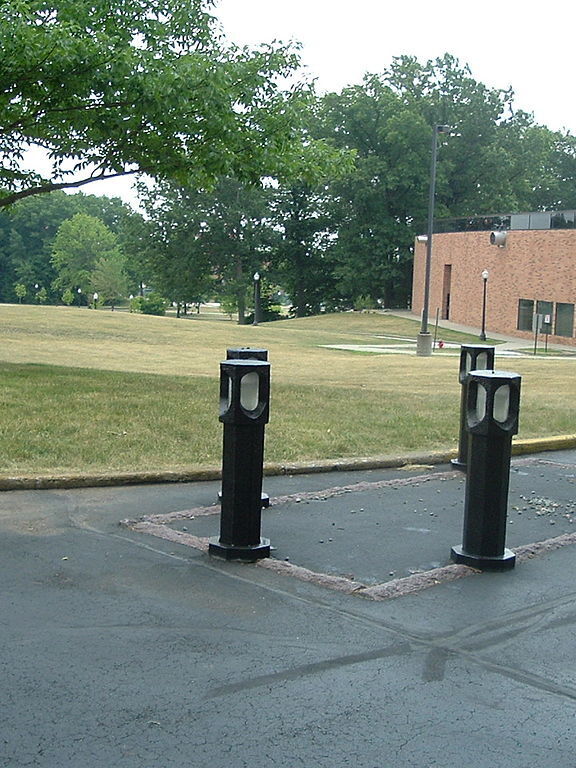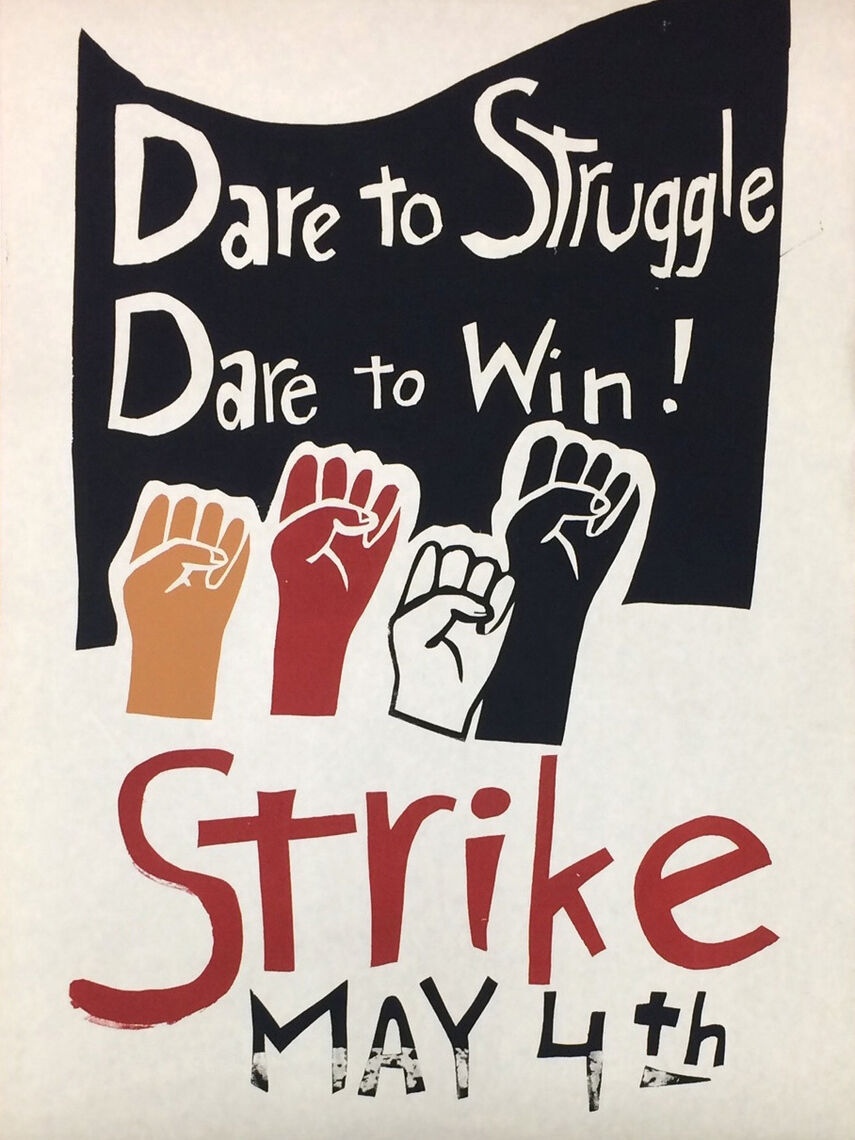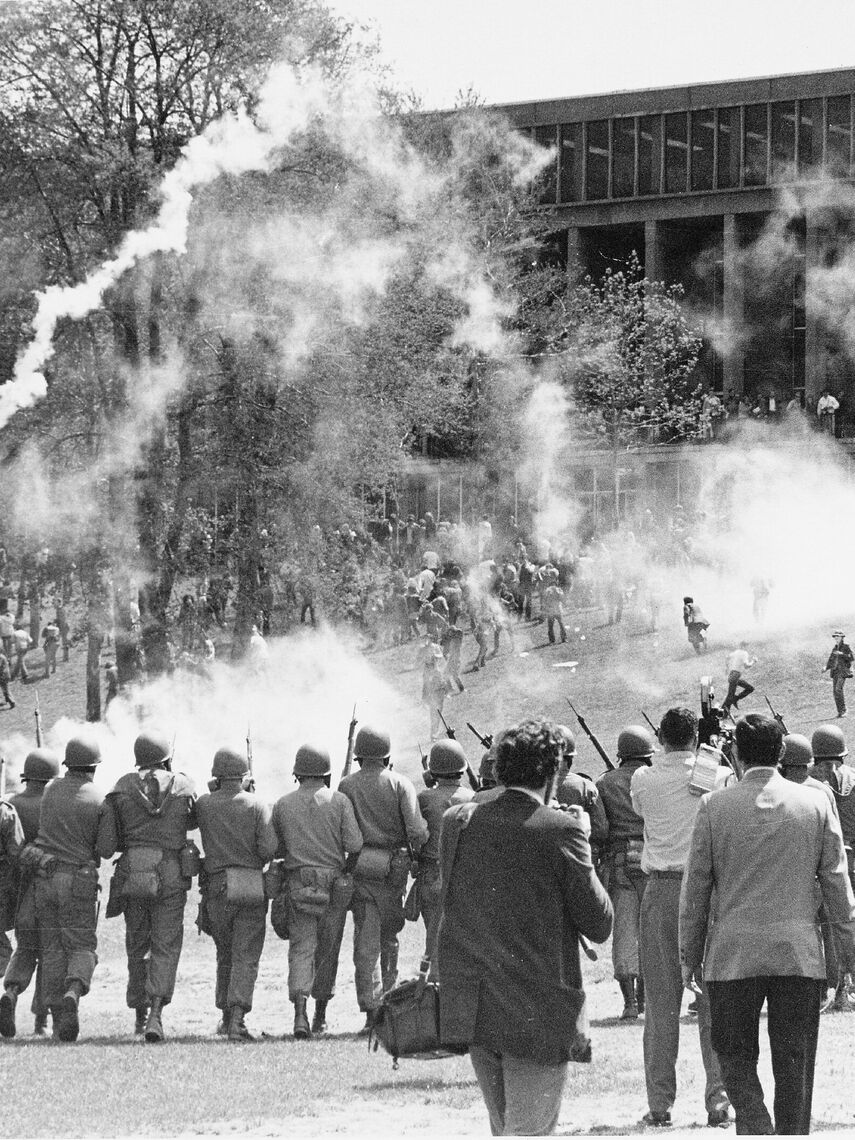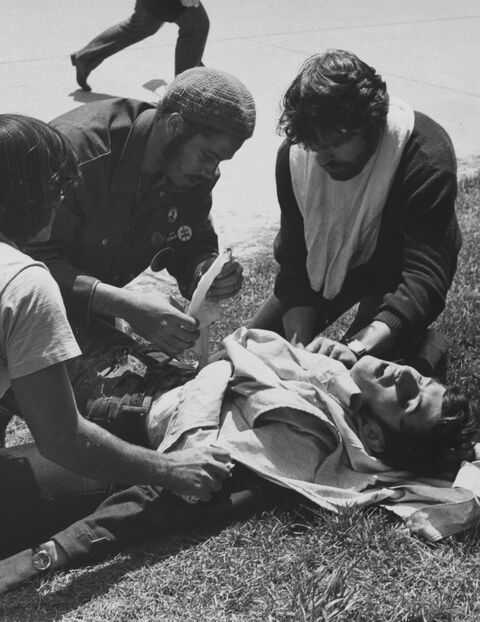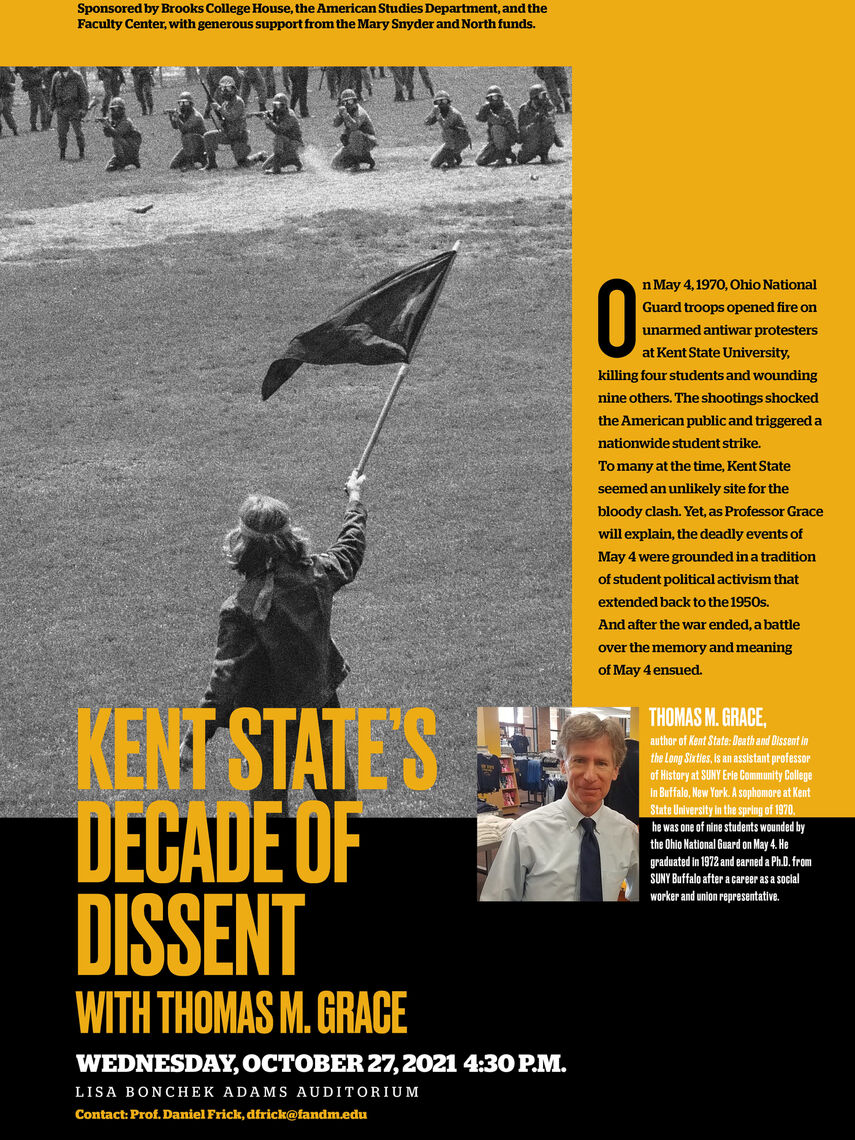F&M Stories
Kent State Survivor Discusses Student Dissent
On the first Friday in May 1970, following President Richard Nixon's announcement that American forces in Vietnam just invaded neighboring Cambodia, about 500 Kent State students gathered to protest what they viewed as expansion of the unpopular Vietnam War.
More protests on and around the Ohio campus followed over the weekend, some violent. The governor summoned the National Guard and by Monday afternoon, four students were dead and nine wounded, none of them armed, shot by Guardsmen during a peaceful protest.
At 4:30 p.m. Oct. 27 in Franklin & Marshall College's Lisa Bonchek Adams Auditorium, one of the nine wounded, Tom Grace, a Kent State history professor and author of 2016's "Kent State: Death and Dissent in the Long Sixties," will lecture on his college's long history of student activism.
"It's an important event because in the United States we have a long history of struggling with this issue and what Tom's lecture will bring to people, even people who think they kind of know what Kent State is about, is that we don't fully understand the history of the place," said Daniel Frick, director of F&M's Writing Center and senior teaching professor of American studies.
Frick published a biography of Nixon in 2008, "Reinventing Richard Nixon: A Cultural History of an American Obsession,"and is preparing another book on him. He said of Grace's topic, "I think outsiders think, 'Wow, Nixon made people so mad that this little community in the heartland rose up and had this protest. Tom's book actually shows that weekend in May 1970 was part of a decadelong student activism that sort of grew out of labor disputes in the automobile industry and the tire industry in northeast Ohio and continued after the shootings."
"The Black Lives Matter protests in summer 2020 and the Trump administration's response were echoes of the events at Kent State," Frick added.
"A battle ensued over the meaning of [Kent State] because Nixon and the Guard worked very hard to build this narrative that the students got what was coming to them, that they asked for it," he said. "'When dissent turns to violence, it invites tragedy,'" that was the White House statement."
Said Frick, "We have this sense of America at war with itself right now; we were definitely at war with ourselves back then and that sense that protest on a campus could actually lead to death, to students being killed for expressing their opinions, is worth remembering."
Related Articles
May 6, 2024
Five Facts About Jason Cone ’99, Commencement Speaker
Get to know Jason Cone ’99, chief public policy officer of Robin Hood and former U.S. executive director of Doctors Without Borders.
May 1, 2024
Chilamo Taylor ’24 Forges Unique Path to Japan
How did football and fashion lead Franklin & Marshall senior Chilamo Taylor to a prestigious postgraduate fellowship in Japan? Learn more about his upcoming Princeton in Asia fellowship.
April 29, 2024
F&M in Harrisburg Offers Firsthand Look at Careers in Government
F&M students gained hands-on experience in public affairs through the F&M in Harrisburg Practicum, which matched students with internship opportunities.

